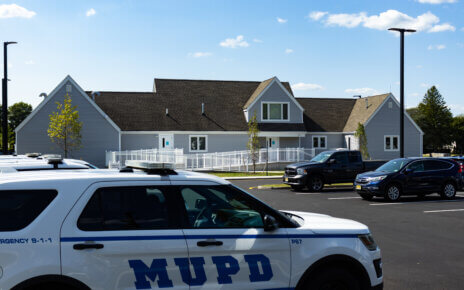In the early weeks of Katelyn Laeyt’s freshman year at Ramapo College, a professor sent her class a clear message a classmate’s plagiarized essay, each line marked in red, posted on the professor’s door.
“You could see everything that was plagiarized,” Laeyt said. “The message was, ‘Don’t do it.'”
Professors across the region say student plagiarism is on the rise, so they must be more creative and direct about how they combat it.
Some use Internet programs like Turnitin.com, the software that flagged passages in Laeyt’s paper that may have come from other sources. Some start the term with presentations about plagiarism and its consequences. Some simply try to be extra vigilant about changes in tone or uncharacteristic writing style in their students’ essays.
Unless they are clear and consistent about their policies against plagiarism, professors said, they have no doubt some of their students tempted by the sheer amount of information easily available on the Internet will try it.
“Everyone thinks everyone else is doing it, so they’re doing it, too,” said Don McCabe, a Professor in the Management and Global Business Department of the Rutgers Business School who has spent the past 20 years studying academic dishonesty.
“The number of students engaging in the behavior has not increased, but those who are doing it are doing it more often. They used to do it only when they were desperate. Now they do it as a matter of habit.”
McCabe’s surveys of more than 200,000 college students, 50,000 high school students and about 20,000 faculty members have found that a third to 40 percent of students admit to having done some kind of cut-and-paste plagiarism, he said.
Although there was a surge of students reporting plagiarism after the advent of the Internet, the number has gone down slightly since then, corresponding to a decline in the number of students responding to his surveys, he said.
He does not attribute the decrease in self-reported plagiarism to a rise in academic honesty, however. Rather, he thinks students who cheat are no longer interested in responding to surveys.
McCabe’s hypothesis is supported by a Pew Research Center study released in August that reported that 55 percent of college presidents said plagiarism in students’ papers had increased over the past 10 years. Of those who thought plagiarism was on the rise, 89 percent said the Internet had played a major role.
Students randomly polled at Ramapo said the popularity of antiplagiarism programs, and the common knowledge that their professors are watching out for plagiarism, keeps incidents of plagiarism low, although they said increased vigilance also comes with downsides.
Cristian Torres, 23, a Ramapo junior, said a professor once made him rewrite a paper that was flagged on Turnitin even though Torres insisted it was his own work.
Other students said such programs made them nervous.
“What if I’m plagiarizing?” said freshman Louis Pena, 18. “I don’t want to fail. What if I do it by accident?”
Debra Zellner, a Psychology Professor at Montclair State University, said she catches as many as five students a semester when she is teaching large seminars of about 100 students. A few students had even plagiarized from Zellner’s own published research, she said.
Signs of problems include shifts in writing styles from one sentence to the next, citations that don’t match up or the use of highly technical language. One student was exposed when she used the scientific term “allele” but could not tell Zellner what it meant.
Zellner attributed student plagiarism to a lack of writing experience in high school, combined with last minute panic when students don’t manage their time well.
“They think there’s some trick to it, that they have to write a particular way, so they panic,” she said.
Zellner said she makes a point of telling students she will confront and report all incidents of student plagiarism according to the university’s policy; students are reported to the dean’s office the first time they’re caught intentionally plagiarizing and can be put on probation or expelled the second time. She said she had never had to make a second report.



